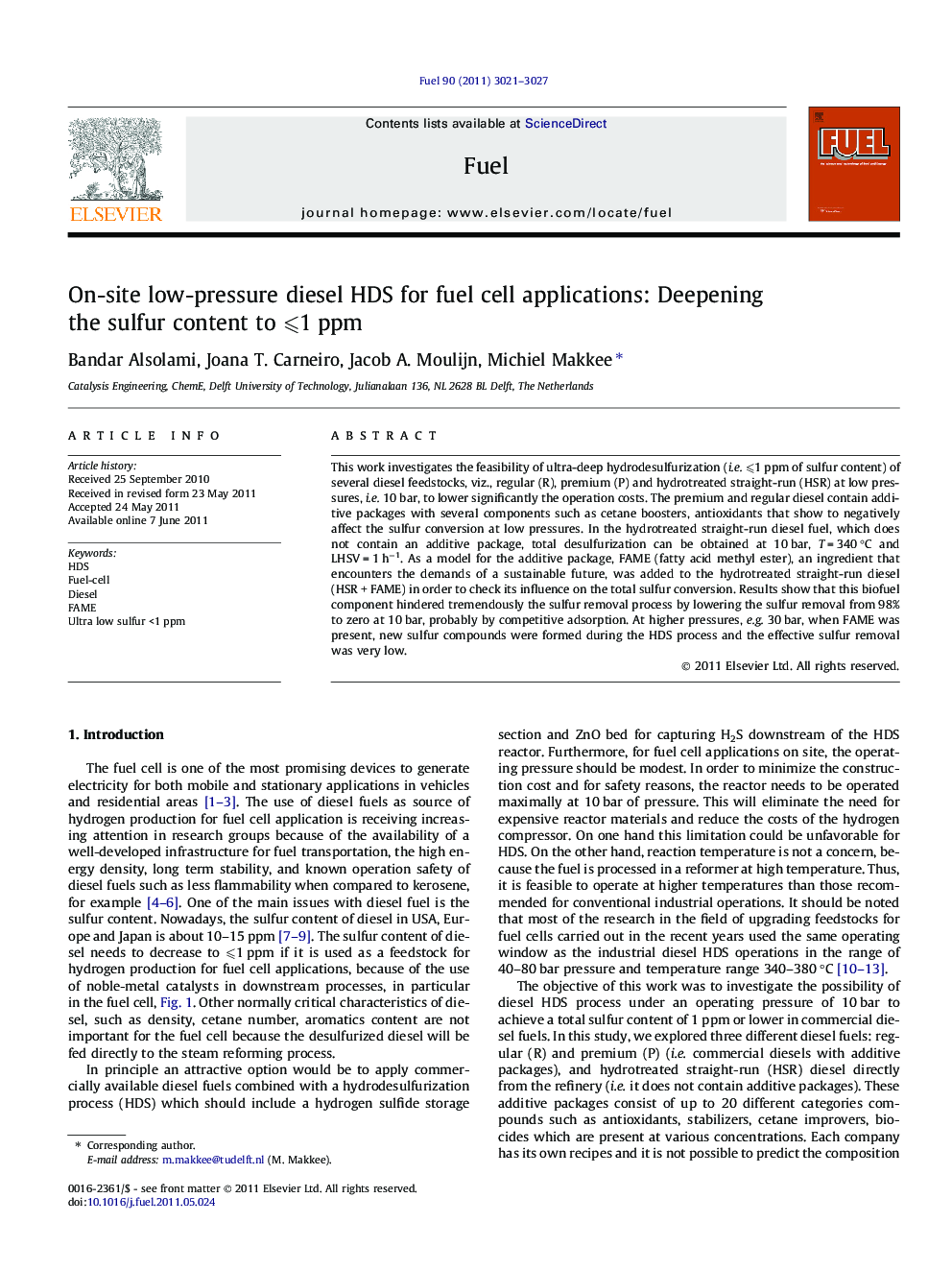| Article ID | Journal | Published Year | Pages | File Type |
|---|---|---|---|---|
| 206423 | Fuel | 2011 | 7 Pages |
This work investigates the feasibility of ultra-deep hydrodesulfurization (i.e. ⩽1 ppm of sulfur content) of several diesel feedstocks, viz., regular (R), premium (P) and hydrotreated straight-run (HSR) at low pressures, i.e. 10 bar, to lower significantly the operation costs. The premium and regular diesel contain additive packages with several components such as cetane boosters, antioxidants that show to negatively affect the sulfur conversion at low pressures. In the hydrotreated straight-run diesel fuel, which does not contain an additive package, total desulfurization can be obtained at 10 bar, T = 340 °C and LHSV = 1 h−1. As a model for the additive package, FAME (fatty acid methyl ester), an ingredient that encounters the demands of a sustainable future, was added to the hydrotreated straight-run diesel (HSR + FAME) in order to check its influence on the total sulfur conversion. Results show that this biofuel component hindered tremendously the sulfur removal process by lowering the sulfur removal from 98% to zero at 10 bar, probably by competitive adsorption. At higher pressures, e.g. 30 bar, when FAME was present, new sulfur compounds were formed during the HDS process and the effective sulfur removal was very low.
► Hydrotreated straight-run diesel can be desulfurized at 10 bar and 340 °C. ► Additive packages in diesel inhibit the sulfur removal. ► FAMEs react via HDO and HYD pathways where competitive adsorption lowers HDS activity.
